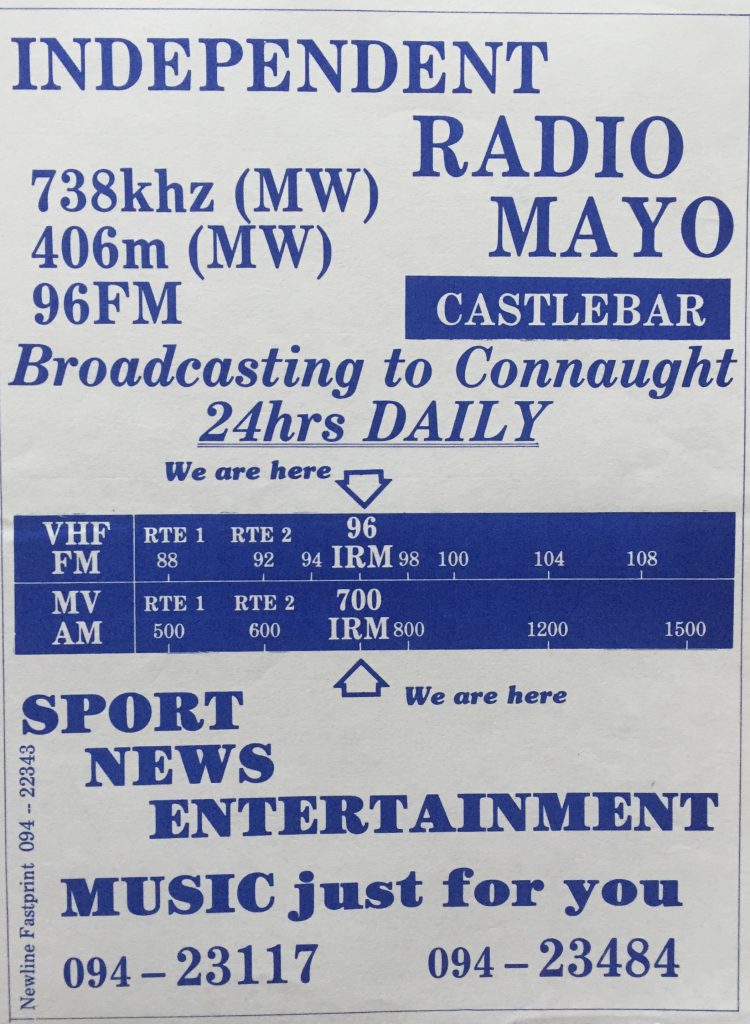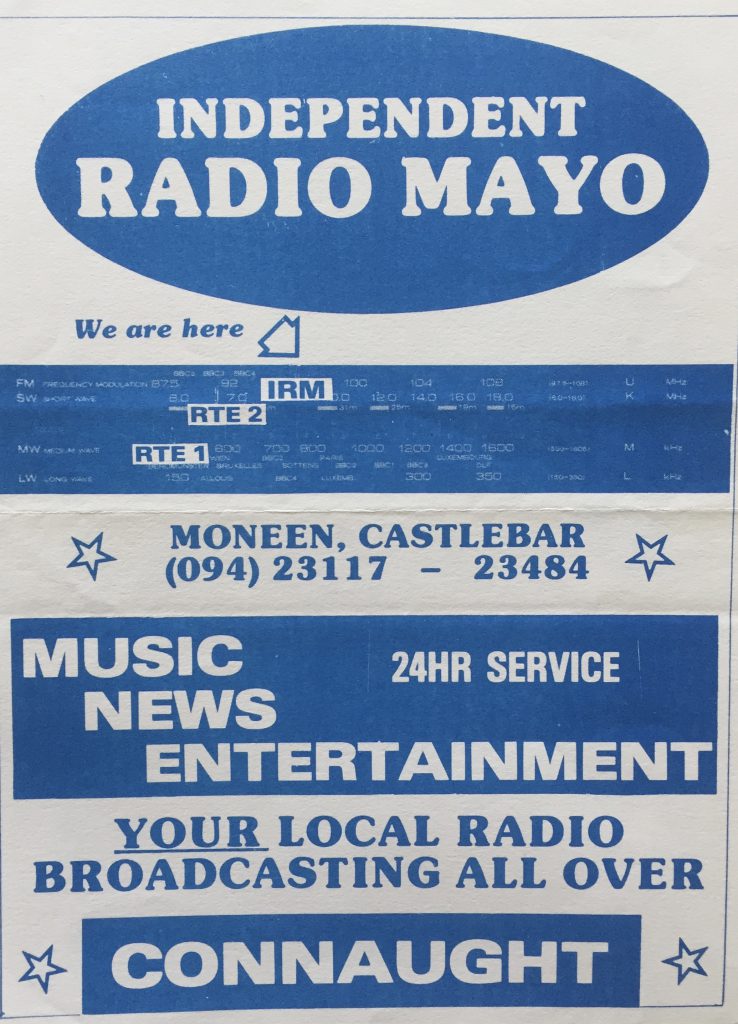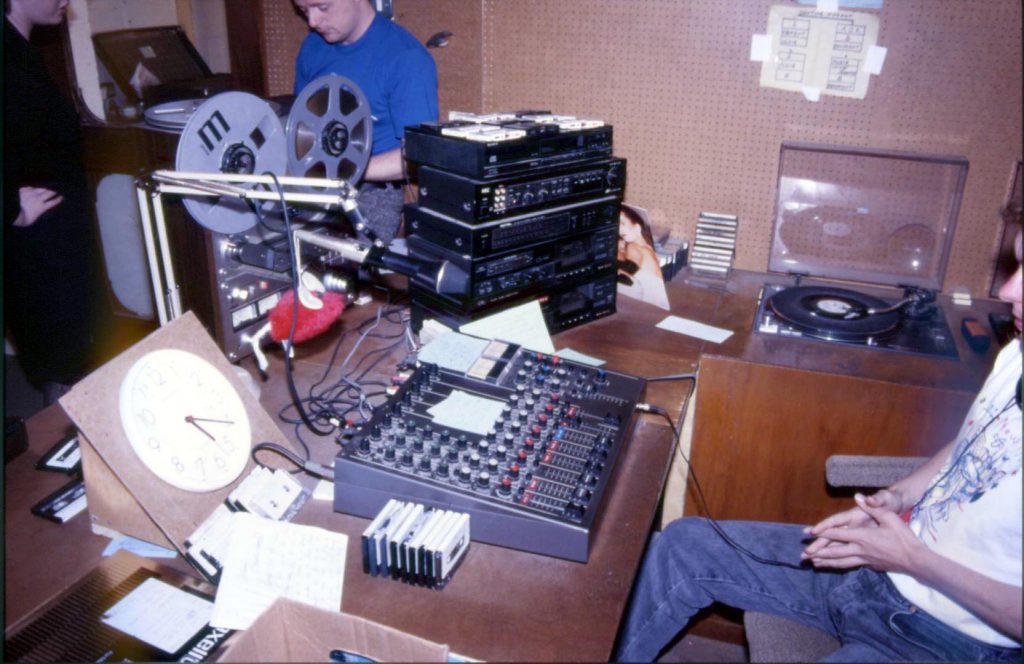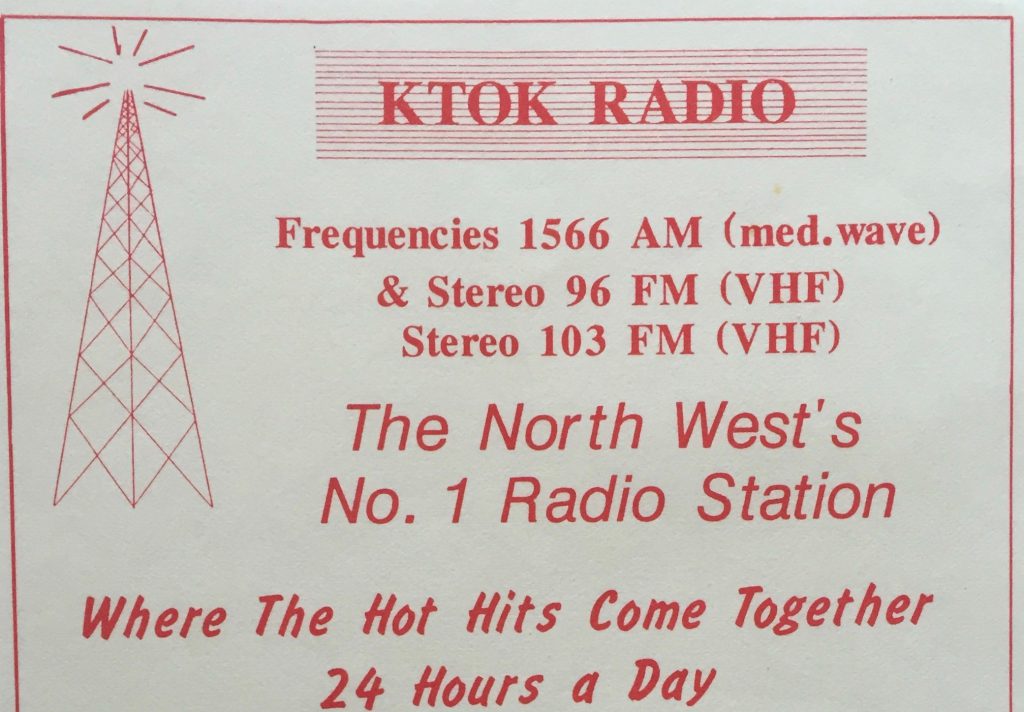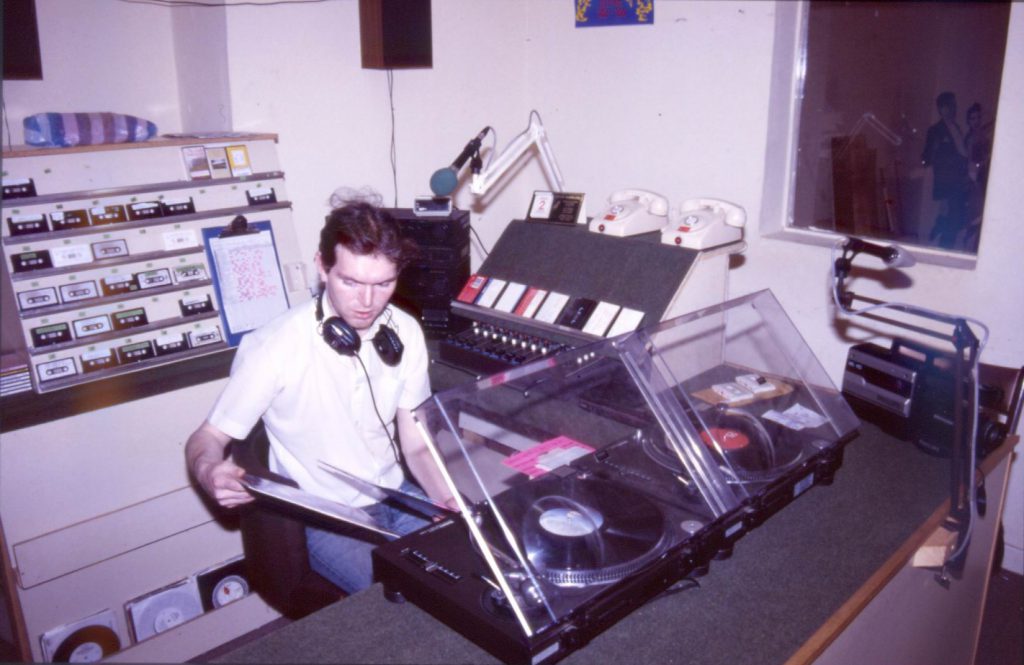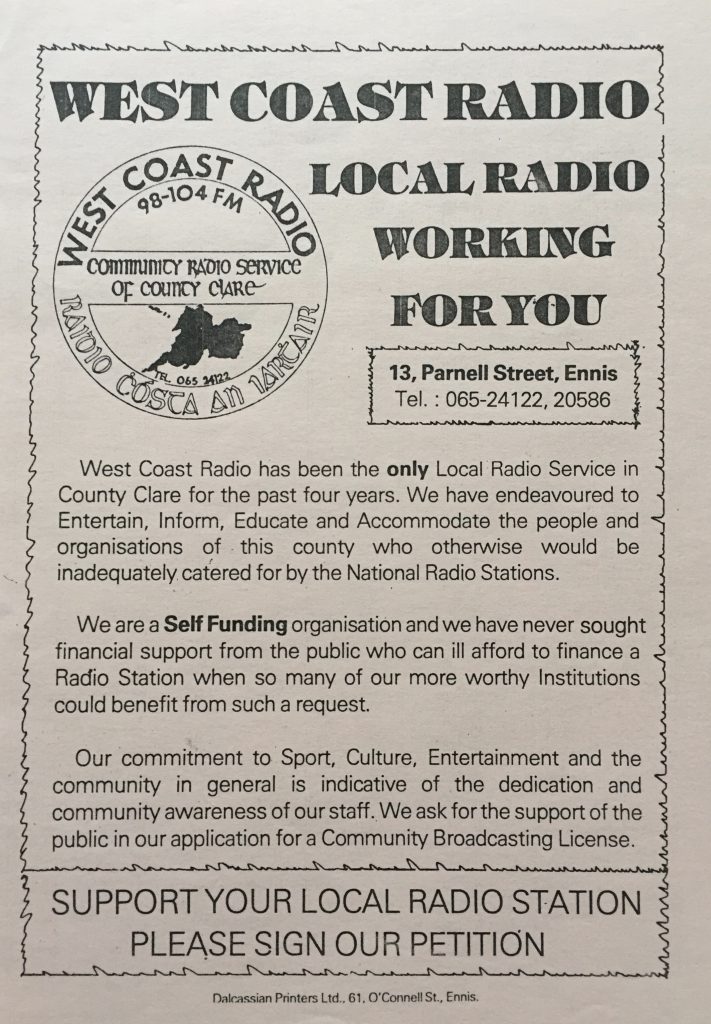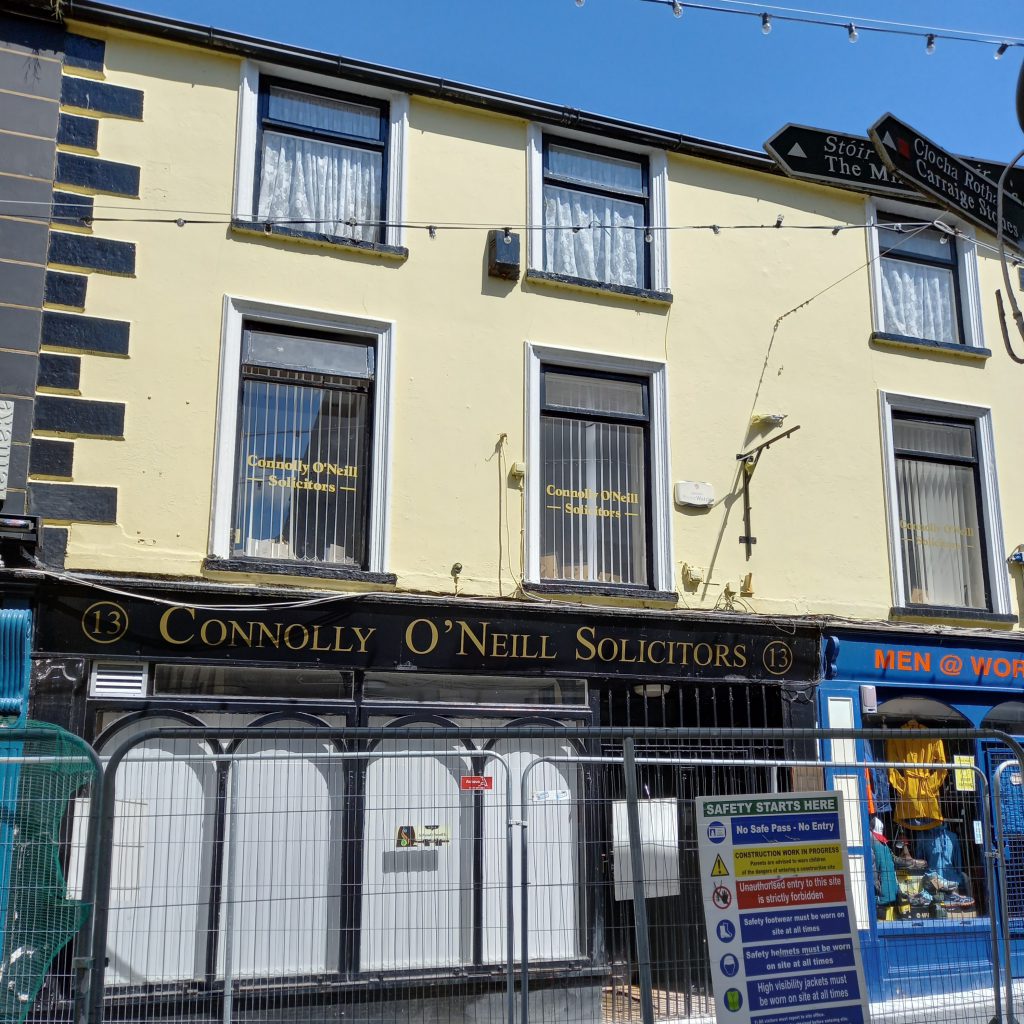Podcast: Play in new window | Download
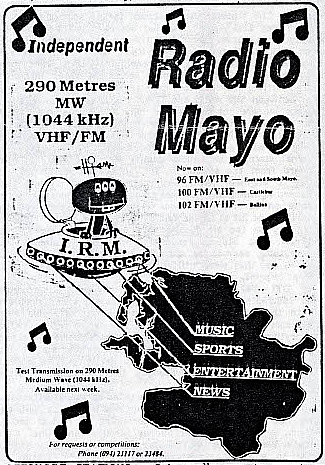
Independent Radio Mayo (IRM) from Castlebar began broadcasting in July 1987, in competition with the popular local station Midwest Radio in Ballyhaunis. An advert in the Anoraks UK Weekly Report (left) shows that IRM had three FM frequencies: 96 MHz to east and south Mayo, 100 MHz in Castlebar and 102 MHz covering Ballina in the north. Test transmissions on 1044 kHz AM were mentioned but the station later switched to 738 kHz, using the old Radio Leinster transmitter from Dublin.
This recording of IRM was made from 99 FM from 1630-1719 on Friday 4th November 1988. It features the last part of the Golden Hour with Andy Rogers (formerly of the BBC) and Peter James, who review the music of 1972. The 5 o’clock news is read by Chris Clesham and this is followed by Joe Finnegan. The ‘Independent’ part of the station name was often dropped by presenters who referred simply to ‘Radio Mayo’. Along with most other pirates, IRM closed down on New Year’s 1988 in line with new radio legislation.
Reception is fair as the recording was made in Co. Clare, well outside IRM’s core FM coverage. We thank John Breslin for the donation.

